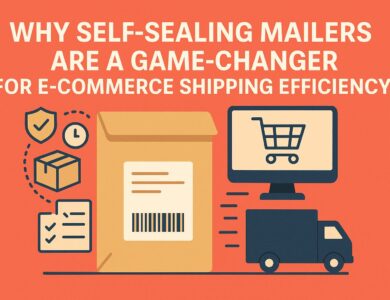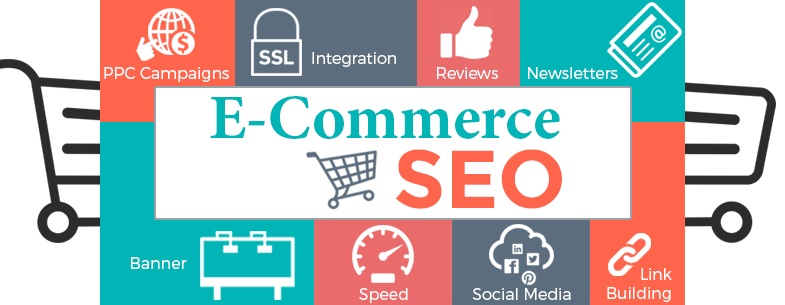
E-commerce has been revolutionizing the way we shop since its inception. It has made everything from groceries to luxury items accessible with just a click of a button. Even though e-commerce has been around for quite some time, it is expected to grow exponentially in the upcoming years. This means that your business needs to be better equipped to handle the changes that come with this growth. In this blog post, you will learn some of the steps you can take to ensure that your e-commerce business is prepared for the future.
E-commerce has experienced a rapid increase in popularity in recent years, and it is not showing any signs of slowing down. With technology advancing and more people becoming accustomed to shopping online, e-commerce will continue to shape the retail industry, making it more competitive than ever. As a business owner or director, it is your responsibility to embrace these changes and ensure that your business is on board with the latest trends in e-commerce.
The following steps will help you prepare for the future direction that e-commerce is taking.
Improve Your Website’s User Experience
Your website is the face of your business, and it plays a crucial role in attracting and retaining customers. In a world where attention spans are short, and competition is high, you need to make sure that your website’s user experience is as smooth and seamless as possible. To improve user experience, you can invest in responsive design that works on all devices, improve page load times, and simplify the navigation so that your visitors can find what they are looking for with ease. Ensure everything is designed with search engine optimization (SEO) in mind too, and work with specialists such as SEO NSW to get your website on the right track for your future e-commerce plans.
Optimize Your Site for Voice Search

Voice search is another trend that is expected to grow in popularity over the upcoming years. With the advent of Alexa, Google Assistant, and Siri, more people are using voice searches to look for products and services online. To stay ahead of the curve, you can optimize your website for voice search. This includes focusing on long-tail keywords, making sure that your website content is concise, and using structured data to help search engines understand your content better.
Personalize Your Marketing Efforts
Personalization means tailoring your marketing efforts to meet the unique needs and preferences of your customers. In e-commerce, personalization plays a significant role in driving customer loyalty and sales. By collecting data about your customers’ browsing behavior, purchase history, and preferences, you can create personalized messages and product recommendations. Personalization allows you to offer a more personalized shopping experience, increase customer engagement, and ultimately, drive more sales.
Prepare for Mobile Shopping
With more people using their smartphones to shop online, it is crucial to prepare for mobile commerce. This includes having a mobile-responsive website and adopting a mobile-first mentality. You can also consider investing in mobile apps tailored to your target market to improve customer engagement. Mobile optimization will become increasingly important as more people shop on their phones and as Google shifts to mobile-first indexing.
Invest in Artificial Intelligence

Artificial intelligence (AI) is changing the game for the e-commerce industry. AI-powered systems can automate many processes, from product recommendations to fraud detection. It can also analyze data more efficiently, helping businesses make better decisions. Investing in AI can help you improve the customer experience, optimize your operations, and increase sales. Incorporating AI into your business strategy can provide a competitive edge, allowing you to predict trends and customer behavior based on complex data analysis. Moreover, as AI technology continues to evolve, it can offer new avenues for customer interaction, such as chatbots for instant customer service, leading to improved customer satisfaction and retention.
Tapping into Social Commerce
The rise of social media platforms has paved the way for a new e-commerce trend – social commerce. Social commerce refers to buying and selling directly within social media platforms, without shoppers having to leave the platform. Brands can create a more streamlined and personalized shopping experience by integrating their e-commerce stores with social networks like Instagram, Facebook, and Pinterest. To tap into social commerce, you can start by creating shoppable posts and ads on these platforms. Ensure that your product descriptions, pictures, and pricing are clear and attractive. Utilize the power of user-generated content and encourage customers to share their experiences with your products. By investing in social commerce, you can reach a larger audience, drive more traffic to your e-commerce store, and increase your sales and brand awareness.
Consider the Potential of Quick Commerce (Q-Commerce)
Quick commerce, or Q-commerce, is an emerging trend that is taking e-commerce to the next level. It pertains to the delivery of products and services to consumers in the shortest possible time. Given the rapid pace of life in today’s world, consumers are increasingly seeking immediate gratification, and Q-commerce is designed to meet this demand. Integrating Q-commerce into your business can give you a competitive edge by providing a quick and convenient shopping experience for your customers. Considering strategies such as partnering with local delivery services, or even developing your rapid delivery infrastructure, could be a key move in future-proofing your e-commerce business. As technology and consumer preferences continue to evolve, staying adaptable and open to trends like Q-commerce will ensure your business remains at the forefront of the industry’s evolution.
The future of ecommerce is bright, and those who embrace the changes will be the ones who succeed. As more people shift towards online shopping, it becomes increasingly essential to adapt your business to meet their needs. By improving your website user experience, optimizing for voice search, personalizing your marketing efforts, preparing for mobile shopping, investing in AI, and considering social commerce and q-commerce, you can stay ahead of the curve and reap the benefits of the growing e-commerce market. So, take these steps and watch your e-commerce business thrive.






